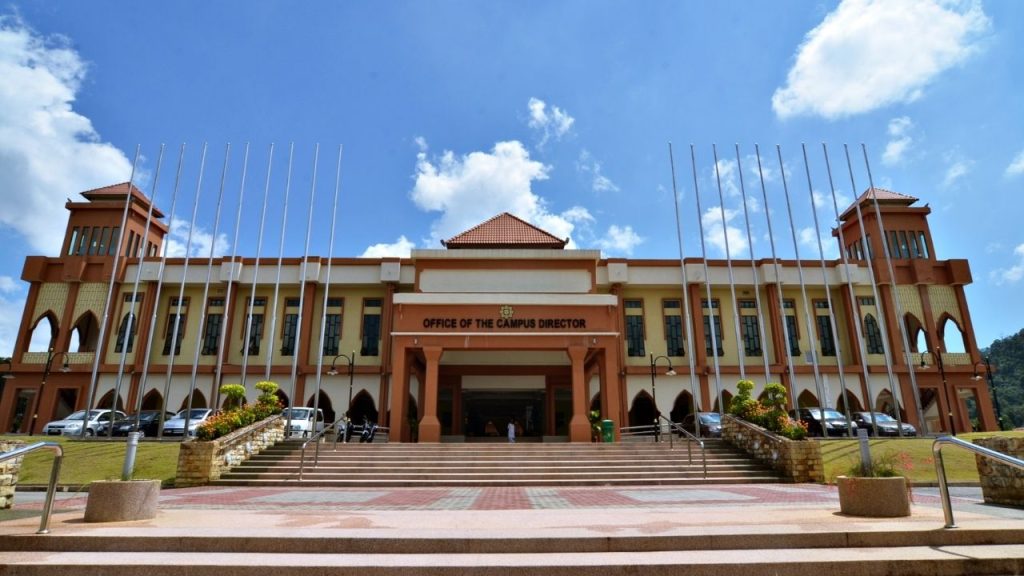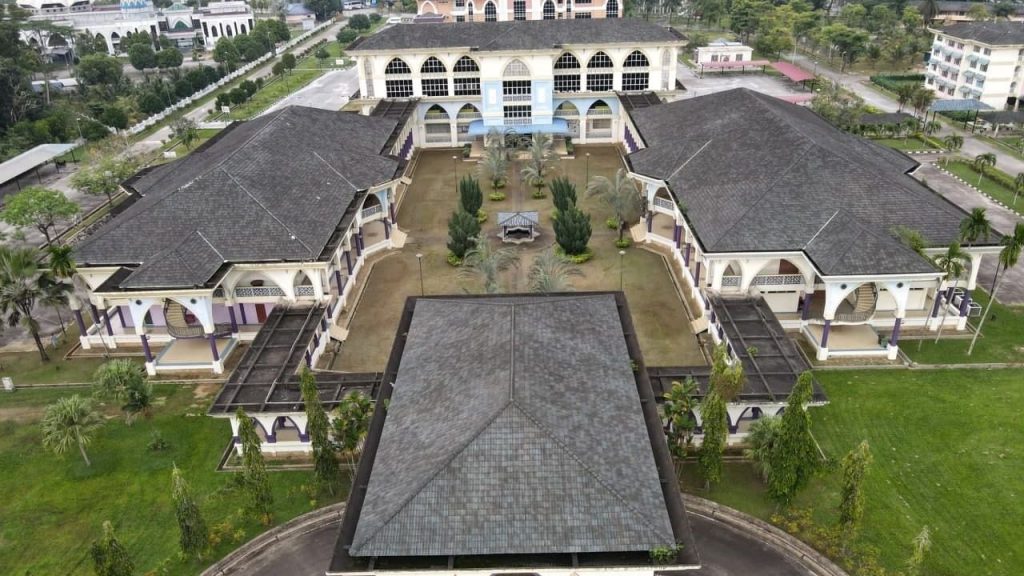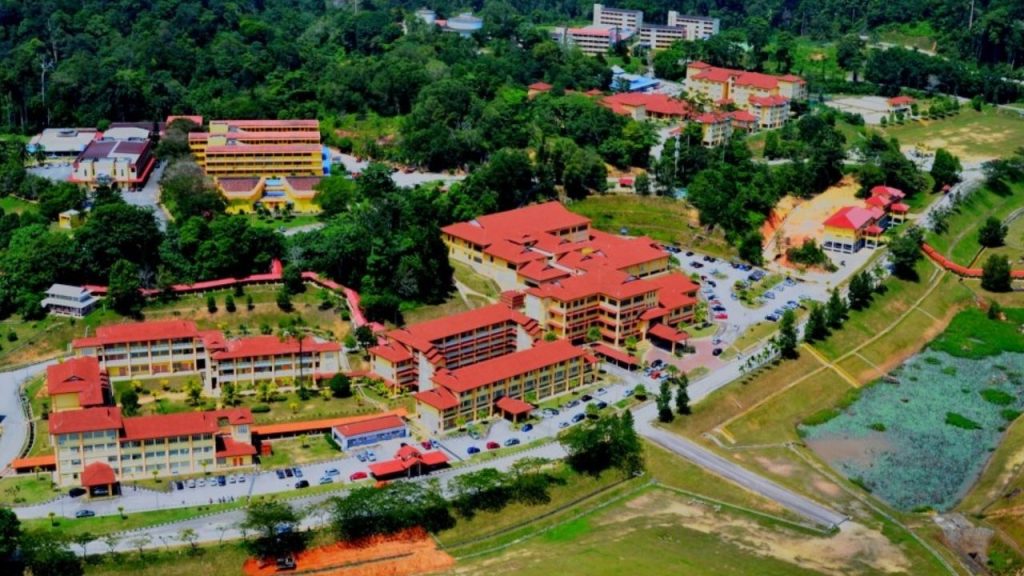



Living In Pahang
Colleges and Universities
Pursuing tertiary education in Pahang is one of the best options because there are many established higher learning institutions especially in Kuantan town. Parents can be rest assured on the international standard and high quality of education provided by these institutions because they are closely monitored by the Malaysian Education Ministries through their quality control authorities and appropriate legislation such as The Education Act, 1996, The Private Higher Educational Institutions Act, 1996 and The Malaysian Qualifications Agency Act 2007.
The universities and colleges here offer courses that award certificate, diploma, first degree and higher degree qualifications (at academic and professional fields). The duration of study for a basic bachelor degree programme is 3 years and the courses of study at this level are provided by both the public and private education sectors.
The tertiary education providers in the state consist of two major groups:
-
- Public (Government-funded) institutions of higher learning, for example, public universities, polytechnics, community colleges and teacher training institutes.
- Private (private-funded) higher educational institutions, for example, private universities, private university colleges, foreign branch campus universities and private colleges Pahang offers international students a wide range of choices in terms of courses and specialisations. One of them is the International Islamic University Malaysia, which is a branch from the main campus in Gombak, offering degrees in Medical, Pharmacy, Allied Health Sciences (Radiography, Optometry, Dietetics and Audiology), Nursing, and Sciences (Biomedical and Physical Sciences).
Public higher learning institutions are run by the Government. Among the institutions situated in Pahang are:
Private higher learning institutions are institutes of higher learning run by private entities. Among the institutions situated in Pahang are:
Competitive Course Fees
Besides the extensive selection of courses available for students, the higher learning institutions here offer competitive course fees .The following tables show the estimated tuition fees at various levels of education:
| Foundation or Pre-University Studies | |
| GCE ‘A’, Level, UK | USD 3,140 – USD 4,860 (18 months) |
| Ausmat, Australia | USD 2,570 – USD 3,140 (1 year) |
| SAM, Australia | USD 2,570 – USD 3,860 (1 year) |
| Canadian Pre-U, Canada | USD 3,430 – USD 4,430 (1 year) |
| Pre-University, Malaysia | USD 2,290 – USD 3,230 (1 year) |
| Preparatory Courses for English Proficiency Tests | |
| Test of English as a Foreign Language (TOEFL) | USD 143 – USD 229 (2 months) |
| International English Language Testing System (IELTS) | USD 129 – USD 229 (2 months) |
| Bachelor’s Degree Programmes (in USD) | |||
| Areas of Study | Paths of Study | ||
| Entire Degree Arrangement | |||
| (i) Private College’s 3+0 Foreign Degree Programme (3 years) |
(ii) Foreign Branch Campus University’s Degree Programmme (3 years) |
(iii) Malaysian Private University’s Degree Programmme (3 years) |
|
| Business | 11,150 – 14,290 | 13,710 – 24,000 | 8,570 – 11,430 |
| Engineering | 12,860 – 14,860 (3 yrs, UK) | 21,140 – 40,000 (4 year – Aust) (3 year – UK) |
12,860 – 14,290 (4 yrs) |
| IT | 9,710 – 12,860 | 13,430 – 25,140 | 9,430 – 12,290 |
| Medicine | – | 114,290 (5 year) | 62,860 – 108,570 (5 year) |
| Hospitality & Tourism |
13,710 – 18,570 | – | 12,000 – 14,290 |
| Preparing Students for External Professional Examinations | |
| The Chartered Association of Certified Accountant (ACCA) | USD 3,290 – USD 4,290 |
| The Chartered Institute o Management Accountant (CIMA) | USD 3,710 – USD 4,570 |
| Institute of Chartered Secretaries & Administration (ICSA) | USD 2,860 – USD 3,430 |
| Postgraduate Studies Offered by Public Universities & Private Universities | |
| Master Business Dan Administration (MBA) | USD 5,710 – USD 16,740 |
| Ph.D | USD 3,000 – USD 10,860 |
Source: Study in Malaysia Handbook published by Challenger Concept (M) Sdn Bhd.
Affordable Living Expenses
The total cost of expenditure for accommodation, either on campus or off-campus, is basically reasonable and within many budgets. Depending on the location and choice, the average monthly rental for a single room (twin sharing) per student is between RM300 – RM450 (USD86 – USD129). Other expenses such as food, transportation, laundry and other essentials, based on an ordinary lifestyle are estimated between RM700 – RM950 (USD200 – USD270) per month. Therefore, the average total cost of living will range from RM 12,000 to RM17,000 (USD3430 – USD4860) per year.
The tables below show the comparison of cost of living between Malaysia and other countries:
| An Example of Comparative Education Cost for a Bachelor’s Degree in Computer Science (3 yrs) of an Australian University | ||
| Items | Australian Branch Campus in Malaysia |
Australian University |
| Tuition Fees | USD 8,650 | USD 17,000 |
| Living Costs | USD 4,290 – 5,710 | USD 14,290 – 16,430 |
| Health Insurance | USD 60 | USD 250 |
| Average Education Cost (per year) | USD 13,670 | USD 32,440 |
| Total Education Cost | USD 41,010 | USD 97,330 |
| An Estimation of Education Cost for a Bachelor’s Degree Programme in Arts & Business (per year) in Various Countries | |||
| Country | Tuition Fees | Living Cost | Total Cost |
| Australia (public) | USD 8,500 | USD 8,500 | USD 17,000 |
| Canada (public) | USD 7,500 | USD 9,000 | USD 16,500 |
| France (public) | minimal | USD13,000 | USD 13,000 |
| Malaysia (private) | USD4,600 | USD4,000 | USD9,000 |
| New Zealand (public) | USD 10,000 | USD 11,500 | USD 21,500 |
| Singapore (private) | USD 6,500 | USD 10,000 | USD 16,500 |
| United Kingdom (public) | USD 14,000 | USD 12,500 | USD 26,500 |
| USA (public) | USD 13,000 | USD 12,000 | USD 25,000 |
| USA (private) | USD 22,000 | USD 13,000 | USD 35,000 |
Source: Challenger Concept Research Team
Other Advantages:
-
- An excellent transportation system, which allows for easy mobility and a huge variety of interesting places to visit for relaxation.
- A geographically safe environment, with Pahang situated in a zone free from most natural disasters.
- Student-friendly laws, which allow international students to work part-time for a maximum of 20 hours per week, while studying full time in Malaysia (subject to immigration requirements).
- A food paradise which has a huge variety of cuisines available including vegetarian, halal, ethnic and western.
- An economically sound and socially safe country, which has a stable government and a low serious crime rate.
- Wide usage of English, which makes living and studying easy for students who are proficient in English while at the same time creating an environment for those who want to pick up the language.

